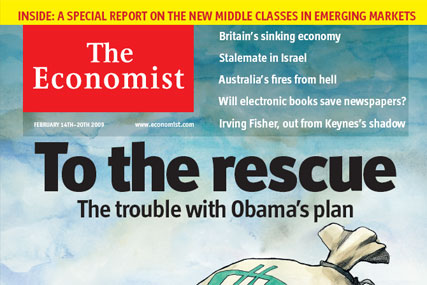The Week increased its circulation 6.4% year on year to mark its 21st consecutive ABC increase, while The Economist was up 3.1% year on year.
The Spectator and Money Week were also up year on year - the latter by 16.6% to 38,916 - leading to speculation that strong news headlines in recent months have been the cause.
Simon Davies, publisher of Dennis Publishing's The Week, cites the US elections, the global credit crunch and the situation in Zimbabwe as contributing factors.
"There has been a lot going on out there and people feel under pressure to keep up," he says.
"The internet only adds to the noise, so people who are very busy and want to get a fully rounded view come to us."
Davies also praised rivals The Economist and The Spectator, describing them as "authoritative sources".
This is not the first time bad news has boosted circulation figures in news titles, according to Yvonne Ossman, UK publisher of The Economist, who referenced a rise following 9/11 in 2001.
She says: "At the moment, we're on the crest of that wave - people are turning to us for analysis to make sense of the world." Ossman's team is also experiencing the highest renewal rates for the title.
However, there was not good news for everyone in the sector, as market leader Pressdram's Private Eye fell 2.1% year on year to 203,234, and the circulation of Time Warner's Time in the British Isles dropped 0.9% to 134,316.



